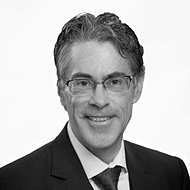Financial Advice Is Good, but Emotional Well-Being Is Better
On the surface, comprehensive financial planners provide advice and services in areas such as investments, retirement, cash flow, and asset protection.
We need to drill deeper, however, to get at a planning firm's core purpose. After exploring this question over recent months, my staff and I have agreed that our core purpose is to transform the financial and emotional well-being of people. That’s the part of our work that gets us out of bed in the morning.
Here's a closer look at the three key words of that purpose:
- Transform: To achieve long-term financial health, people often need to transform their relationship with money by making permanent changes in their attitudes, beliefs, and behaviors. An example of transformation might be someone learning to reframe a money script that has blocked their ability to save for the future.
- Well-being: This is a multidimensional word that includes financial, emotional, and physical aspects of people's lives. Our purpose focuses on both the financial and emotional aspects. Since some 90% of all financial decisions are made emotionally, separating financial and emotional well-being is almost impossible.
- People: By referring to "people" rather than "clients," we acknowledge that, in order to foster transformation and well-being for our clients, we also need to be concerned about the well-being of all the members of our staff.
Once a firm has defined its core purpose — the "what" — the next step is to create a framework of principles to accomplish that purpose. This is the "how" that guides the operations of the company. The principles might be something like the following:
We...
- Put clients first.
- Guide people to reach a destination in an unfamiliar area.
- Give sound advice and creative solutions.
- Constantly educate ourselves.
- Practice what we preach.
- Are serial innovators.
Finally, behind the "what" and "how" of what a firm does is the "why." These are the core values, the touchstone that brings everyone in the company together and forms the basis of the company's culture. These values are non-negotiable. Even though a company's purpose or principles may change over time, the values will stay the same. Core values might include:
- Trust. Our work and personal interactions are based on real, unquestionable evidence, reliability, and trustworthiness.
- Unbiased Advocacy. We are defenders, supporters, and interceders on behalf of our clients and one another.
- Well-Being. Everything we do is in support of achieving and maintaining, for our clients and one another, a state of being happy, healthy, and prosperous.
- Continuous Improvement. We focus on improving our processes, our client experience, and ourselves.
In defining the core purpose for a comprehensive financial planning firm, it's essential to appreciate the importance of both financial health and the well-being it supports. One can't have well-being without the financial means to support physical health and emotional happiness.
This is why our firm defines its purpose as transforming people's financial and emotional well-being. This core purpose is based on the belief that comprehensive financial planning goes beyond building financial independence. It also helps clients and staff members change destructive money behaviors, clarify goals, and achieve the dreams that represent happiness to them. In the broadest sense, real financial planning offers investment advice that supports people's investment in their own well-being.
----------
Rick Kahler, ChFC, is president of Kahler Financial Group, a fee-only financial planning firm. His work and research regarding the integration of financial planning and psychology has been featured or cited in scores of broadcast media, periodicals and books. He is a co-author of four books on financial planning and therapy. He is a faculty member at Golden Gate University and the former president of the Financial Therapy Association.
